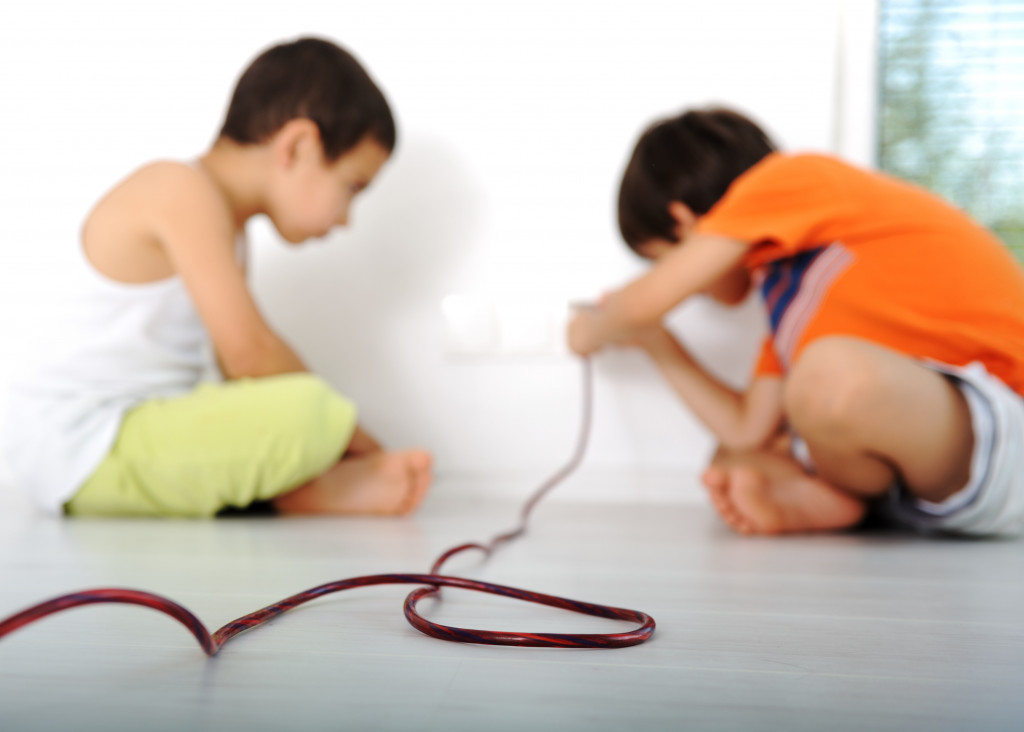Every year, dozens of children are electrocuted after coming into contact with live electrical wires. While most of these accidents are preventable, they continue to occur because many people are unaware of the dangers posed by electrical wires. And this number will only increase since more parents are allowing their children to use electronic devices at younger and younger ages.
But you can do a few things to prevent this from happening to your kids. In this blog post, we’ll provide tips on keeping your children safe from electrocution at home.
1. Keep all electrical appliances and cords out of reach of children.
Of course, you want to keep all electrical appliances and cords away from children. But did you know that even if a device is turned off, it can still pose a risk of electrocution? That’s because many appliances have exposed live wires that curious little hands can easily touch. So it’s essential to keep all devices unplugged and out of reach when they’re not in use.
You should also regularly inspect all electrical cords and appliances for any signs of damage. If you see any frayed or exposed wires, immediately replace the cable or appliance. Some parents keep all electrical cords and devices in a locked cabinet, which is a good idea if you have young children in the home.
2. Cover all unused electrical outlets.
Plugs and outlets can also pose a risk of electrocution. When children see an outlet, they might be tempted to put their fingers or other objects into it. You can prevent this by using outlet covers on all unused outlets. If you have outlets in use, keep them clear of any clutter so that children can’t reach them.
You can also cover wires to prevent children from playing with them. Wires left exposed can easily be chewed on by pets or tugged on by kids, which can cause them to become frayed and pose a risk of electrocution. You also want to ensure the wires are hidden and not easily accessible if you have electric doors. Use an electric power transfer door hardware to keep the cables hidden and out of reach.
3. Teach your children about electric safety.
Educating your children about electric safety is the best way to prevent accidents. Teach them about the dangers of electricity and what they should do if they see an electrical appliance or cord. It’s also a good idea to have a family plan in case of an emergency.
Let them know who to call if they see something dangerous, and make sure they know how to use the emergency shut-off switch. Review these safety tips with your children regularly so that they can be sure to stay safe. Contact a professional electrician if you have any concerns about your child’s safety.

4. Have a qualified electrician inspect your home’s wiring regularly.
To ensure that your home is up to code and does not pose any safety hazards, you should have a qualified electrician inspect your home’s wiring regularly. This is especially important if you live in an older home. Houses over 50 years old may have outdated or damaged wiring that needs to be replaced.
An electrician can also check for potential hazards and ensure that all of your outlets and appliances are properly grounded. Have your electrician replace any old or damaged wiring and ensure all your outlets are properly grounded. Contact a professional electrician if you have any questions about your home’s wiring.
5. Install ground fault circuit interrupters (GFCIs).
Many accidental electrocutions happen when people are using electrical appliances near water. To protect yourself and your family from this hazard, you should install ground fault circuit interrupters (GFCIs) in all areas of your home where there is water. GFCIs are special outlets that immediately turn off the power when a current leak is detected.
This can prevent electrocution by stopping the flow of electricity before it has a chance to cause harm. GFCIs are especially important in areas like the kitchen and bathroom, where there is a higher water exposure risk. But you should also install GFCIs in areas where there is a risk of water exposure, such as the laundry room or basement.
Following the tips above can help keep your children safe from electrocution at home. Remember, even if an accident is minor, always seek medical attention immediately, as there may be internal injuries that are not immediately apparent. And if you have any questions or concerns about electrical safety in your home, don’t hesitate to contact a qualified professional for advice.
